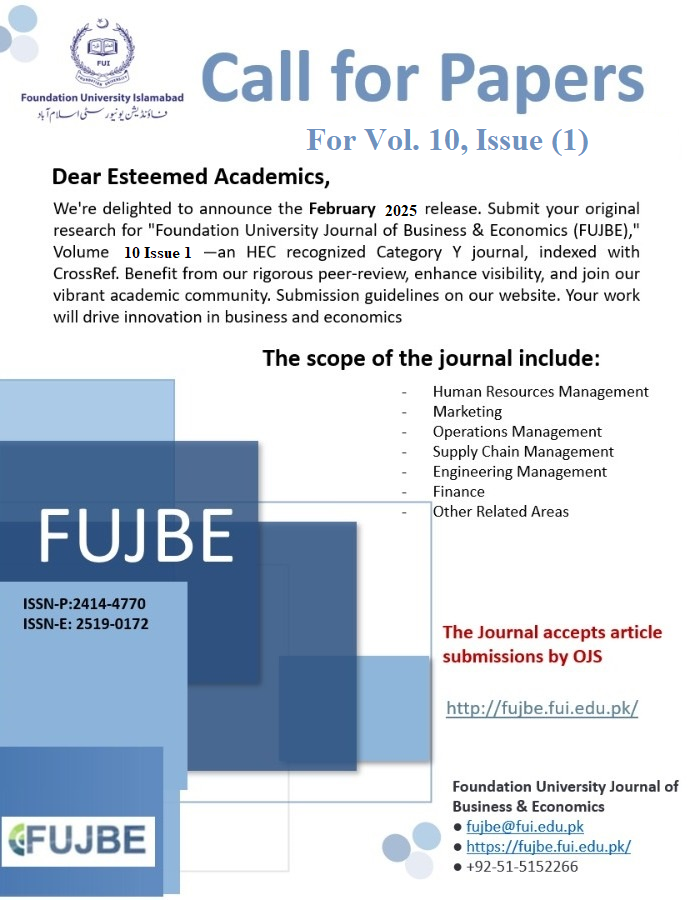An Exploration of Moral Identity's Role in Mitigating the Impact of Despotic Leadership on Organizational Culture and Organizational Agility in the Public Sector of Pakistan
DOI:
https://doi.org/10.33897/fujbe.v8i2.816Keywords:
Organizational Agility, Despotic Leadership, Organizational culture, Moral Identity, Public Sector of PakistanAbstract
This study investigates the mitigating role of moral identity (Ml) in the relationship between despotic leadership (DL) and organizational agility (OA) while considering the intervening role of organizational culture (QC). This study examines the relations that are based on the integration of social identity theory (SIT), social learning theory (SLT), and social exchange theory (SET). Data is collected using a questionnaire survey from 271 employees from different public sector organizations in Pakistan. The data analysis is conducted through SPSS, MPlus, and AMOS. The findings suggest that DL has a significant but negative relationship with OA. The study findings also uncovered that DL has a significant and negative impact on the OC that significantly but positively predicts OA. Furthermore, the results revealed that MI moderates the relationship between DL and OC, such that a high level of moral identity weakens this relationship, hence followers with high moral values will be less influenced by the despotic leaders. This study theoretically as well as practically contributes to the existing literature. Limitations and future directions are also discussed.



